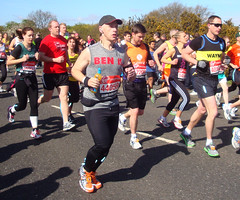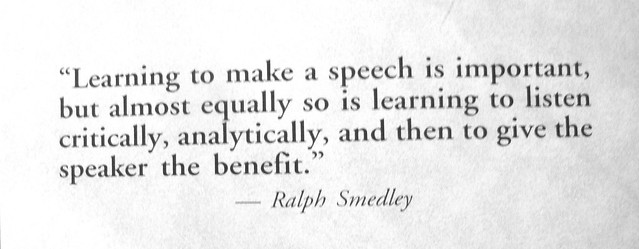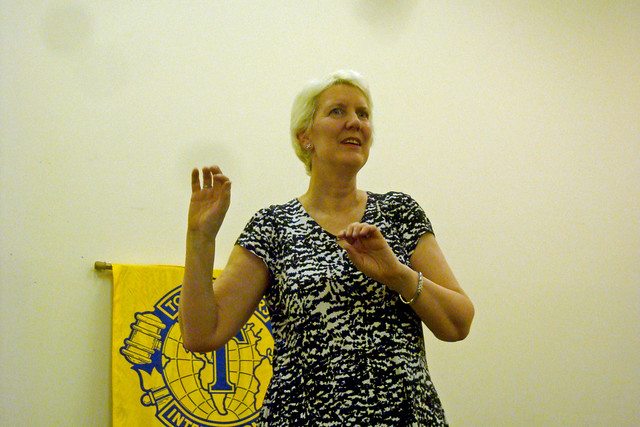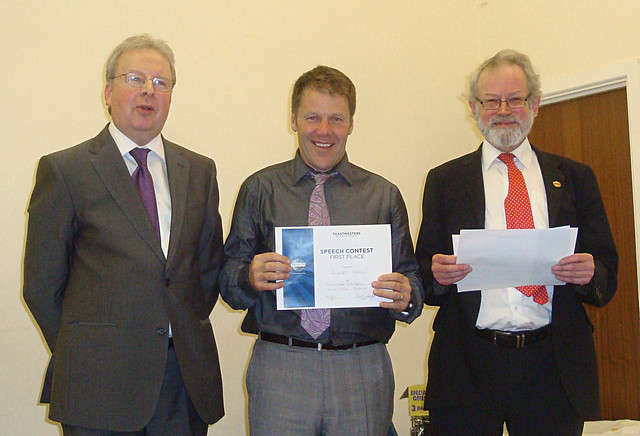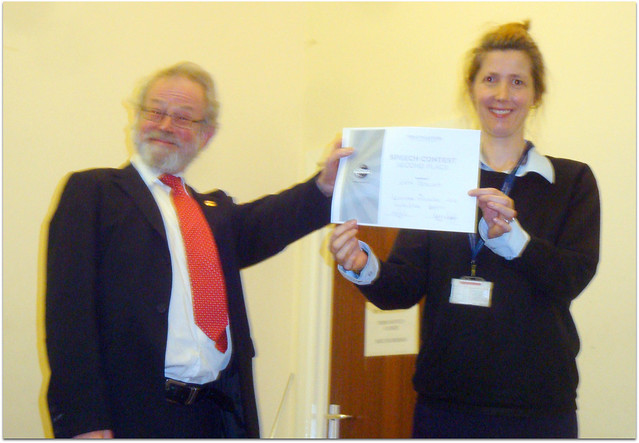Ralph C. Smedley, have hold the first Toastmasters Meeting more then a hundred year ago, to help young men learn public speaking, listening and conducting meetings skills. And thus, give them confidence. He is the founder of our organisation.
He based his meetings on thousand years of experience, but gave it a modern twist. And it is modern to this day!
I have some of the books he wrote, I just love his open; passionate and at the same time irreverent, stubborn spirit!
Basic Training for Toastmasters, 12 basic speeches explained (a more "politically correct version of it become now Competent Communicator). I have the version published in 1943, I was just a kid then.
Speech Evaluation. 'The art of Constructive Criticism' I learned a lot from this one, too. He was voted down on the word "critic" but he did not like "evaluation". I use "feedback" nowadays. It is the essence and what he writes about it, and the different ways they can be done that are important. "Never do the same over and over, he said, make each meeting interesting."
The Amateur Chairman. "First aid for the unprepared president." Well, I did learn so much from it; between others the funny and useful advice: if they do not agree with what you propose, form a committee - and put yourself at its head. Then come back with the committee's decision and put it to vote. But of course, there are a lot more advices in it, as well how to conduct the Business part of the Meeting.
The Voice of the Speaker. The edition I have is even older, from 1940. I was barely six at the time. He gives plenty of advices in it how to strengthen, improve, project your voice. But the most I liked it right in front "the most important, is to have a friendly natural voice."
Personally Speaking, Selections from his writings, published recently, I did not read yet. Soon!
The Story of Toastmasters and The Story of Toastmasters Vol II for later years, I did read. In his usual 'say all' way, he remembers. He even tells us, he did wrote 400 pages, and had to shorten it, as he was asked later. I hope, someone did publish or will publish the original one, as I love his spirit and franc speech.
From all these books, I understood better the spirit of Toastmaster Clubs that were so good from now more then 100 years, that they did not have to change a lot. Well, around 1975, they begin to take women on, that changed some of its spirit I hope to believe. But the initial flame remains.
We help each other to become better speakers, listeners and leaders. We give more confidence to each other.
And, as Ralph C. Smedley told in one of his books "the different feedbacks received during the first 12 speeches help also develop thicker skin to critic from others." Well, that is also a great achievement! Also, of course, do not forget, he never did: : do it in a way to let the speaker leave with confidence.
Basic Training for Toastmasters, 12 basic speeches explained (a more "politically correct version of it become now Competent Communicator). I have the version published in 1943, I was just a kid then.
Speech Evaluation. 'The art of Constructive Criticism' I learned a lot from this one, too. He was voted down on the word "critic" but he did not like "evaluation". I use "feedback" nowadays. It is the essence and what he writes about it, and the different ways they can be done that are important. "Never do the same over and over, he said, make each meeting interesting."
The Amateur Chairman. "First aid for the unprepared president." Well, I did learn so much from it; between others the funny and useful advice: if they do not agree with what you propose, form a committee - and put yourself at its head. Then come back with the committee's decision and put it to vote. But of course, there are a lot more advices in it, as well how to conduct the Business part of the Meeting.
The Voice of the Speaker. The edition I have is even older, from 1940. I was barely six at the time. He gives plenty of advices in it how to strengthen, improve, project your voice. But the most I liked it right in front "the most important, is to have a friendly natural voice."
Personally Speaking, Selections from his writings, published recently, I did not read yet. Soon!
The Story of Toastmasters and The Story of Toastmasters Vol II for later years, I did read. In his usual 'say all' way, he remembers. He even tells us, he did wrote 400 pages, and had to shorten it, as he was asked later. I hope, someone did publish or will publish the original one, as I love his spirit and franc speech.
From all these books, I understood better the spirit of Toastmaster Clubs that were so good from now more then 100 years, that they did not have to change a lot. Well, around 1975, they begin to take women on, that changed some of its spirit I hope to believe. But the initial flame remains.
We help each other to become better speakers, listeners and leaders. We give more confidence to each other.
And, as Ralph C. Smedley told in one of his books "the different feedbacks received during the first 12 speeches help also develop thicker skin to critic from others." Well, that is also a great achievement! Also, of course, do not forget, he never did: : do it in a way to let the speaker leave with confidence.


